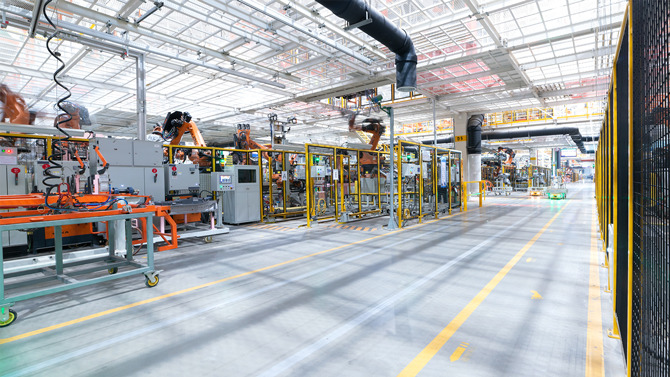
We empower energy and industrials companies with innovative strategies, proven expertise and dynamic solutions to lead confidently in a world of accelerating change.
Energy and industrials

The future of energy and manufacturing: Is America ready to lead the next industrial revolution?
US industrials and energy leaders are on the clock to shape a new golden age.
Overview
Shaping your industrial and energy future. Powering your next move in the industrial revolution.
The industrial revolution is here. Prosperity and security await, driven by innovation, resilience and national ambition. We help you go tech-forward with data and digital at your core — and AI-infused workforces — so you can be flexible, resilient and ready to act, partner and comply. Our industrial products and services team blends sector knowledge with financial, tax and advisory expertise to help you innovate, operate efficiently and build resilience for long-term success.
Sectors
Aerospace and defense
The A&D industry faces intensifying demand across aviation, defense and space. Building sustainable, tech-enabled operations is key to meeting demand while driving profitability. We help drive you to the leading edge in a global landscape.
Automotive
The rise of software-defined vehicles and the transition to electric power trains demand innovation in today’s auto industry. We help balance immediate challenges with long-term strategies to be resilient to emerging pressures in a volatile market.
Chemicals
The chemicals industry is transforming and is driven by sustainability, innovation and the need to adapt to evolving market dynamics. With data and digital at the core, we help you drive eco-friendly progress that benefits businesses and consumers.
Energy
The oil and gas sector stands at the intersection of tradition and transformation. With dynamic, tech-forward strategies, energy companies can succeed in this evolving area. We bring unparalleled expertise and insights to help you thrive amid complexity.
Engineering and construction
The E&C industry is evolving rapidly. Companies face shifting regulatory landscapes and economic pressures, but opportunities to innovate exist. With sustainable, tech-forward practices, we help you build resilient supply chains and navigate uncertainty.
Industrial manufacturing
The industrial manufacturing sector is reimagining how it operates to navigate challenges — challenges we transform into opportunities. With strategic insights, innovative tech and decades of expertise, we can help your business be resilient and thrive.
Power and utilities
The power and utilities industry faces surging energy demands while maintaining its commitments to sustainability, safety and cost efficiency. With data and digital at the core, we help navigate these complexities to lead with resilience and innovation.
Space
Space-driven insights are transforming and unlocking new business models that impact all sectors. We empower organizations to be resilient and harness this revolution to shape the future of industry through space-enabled innovation.
Insights
Case studies
Events
Subscribe
Our insights. Your choices.
Sign up for PwC’s industry newsletters
Contact us









